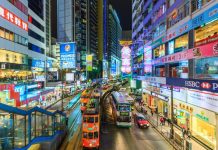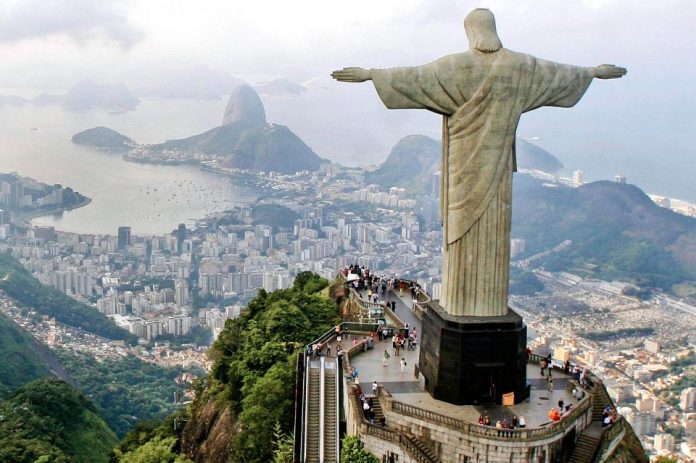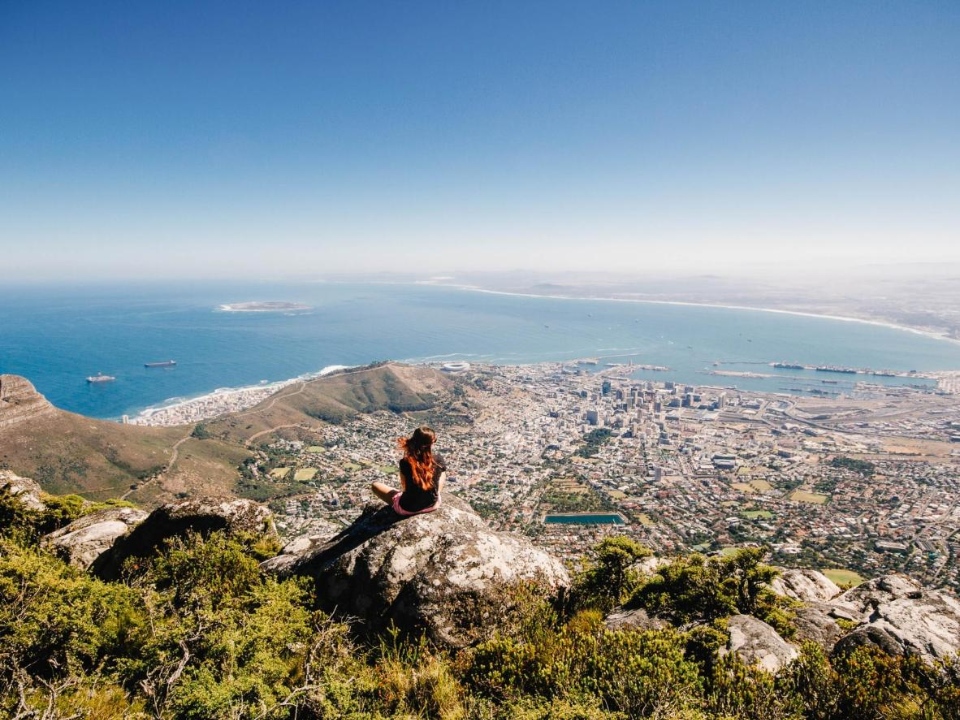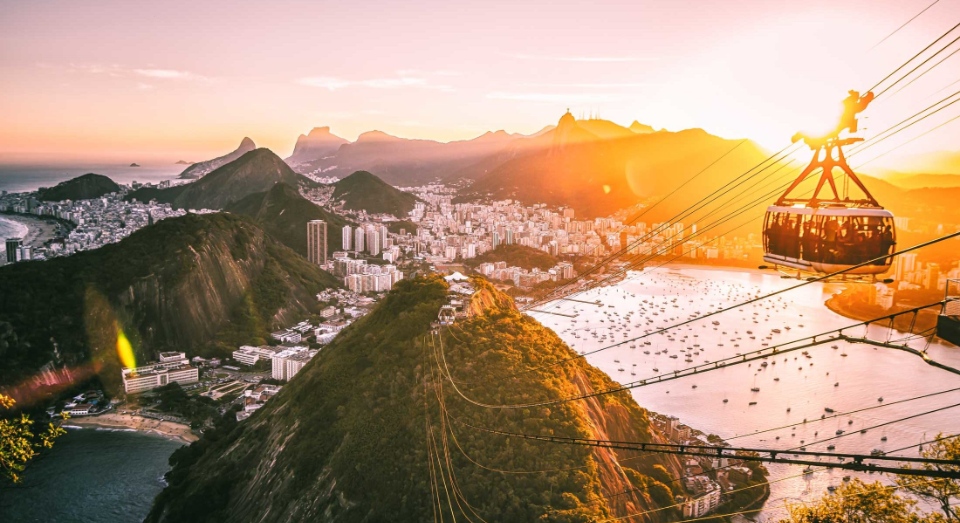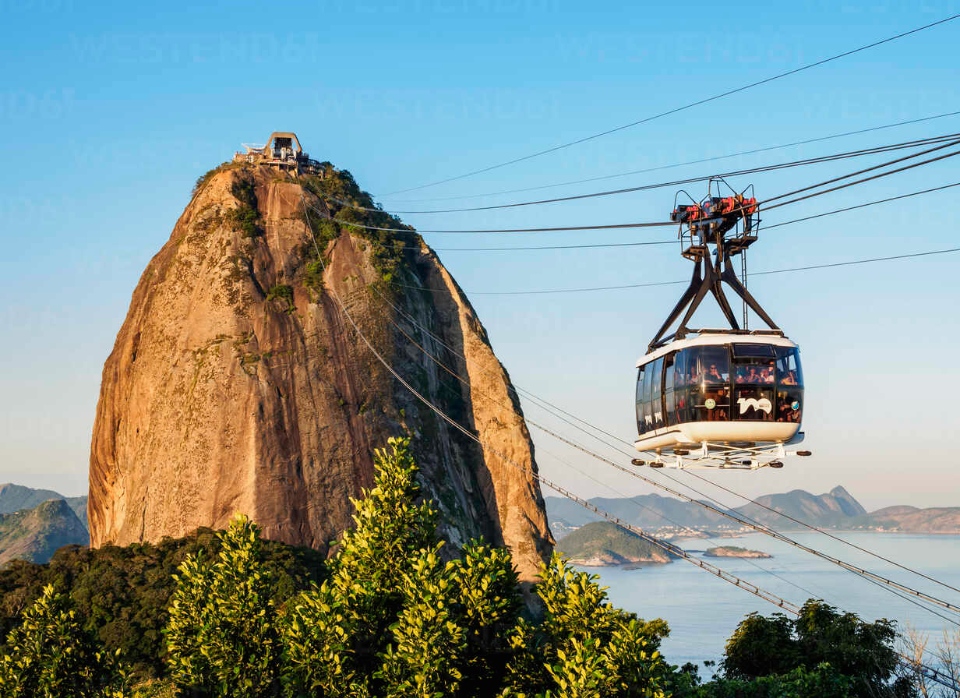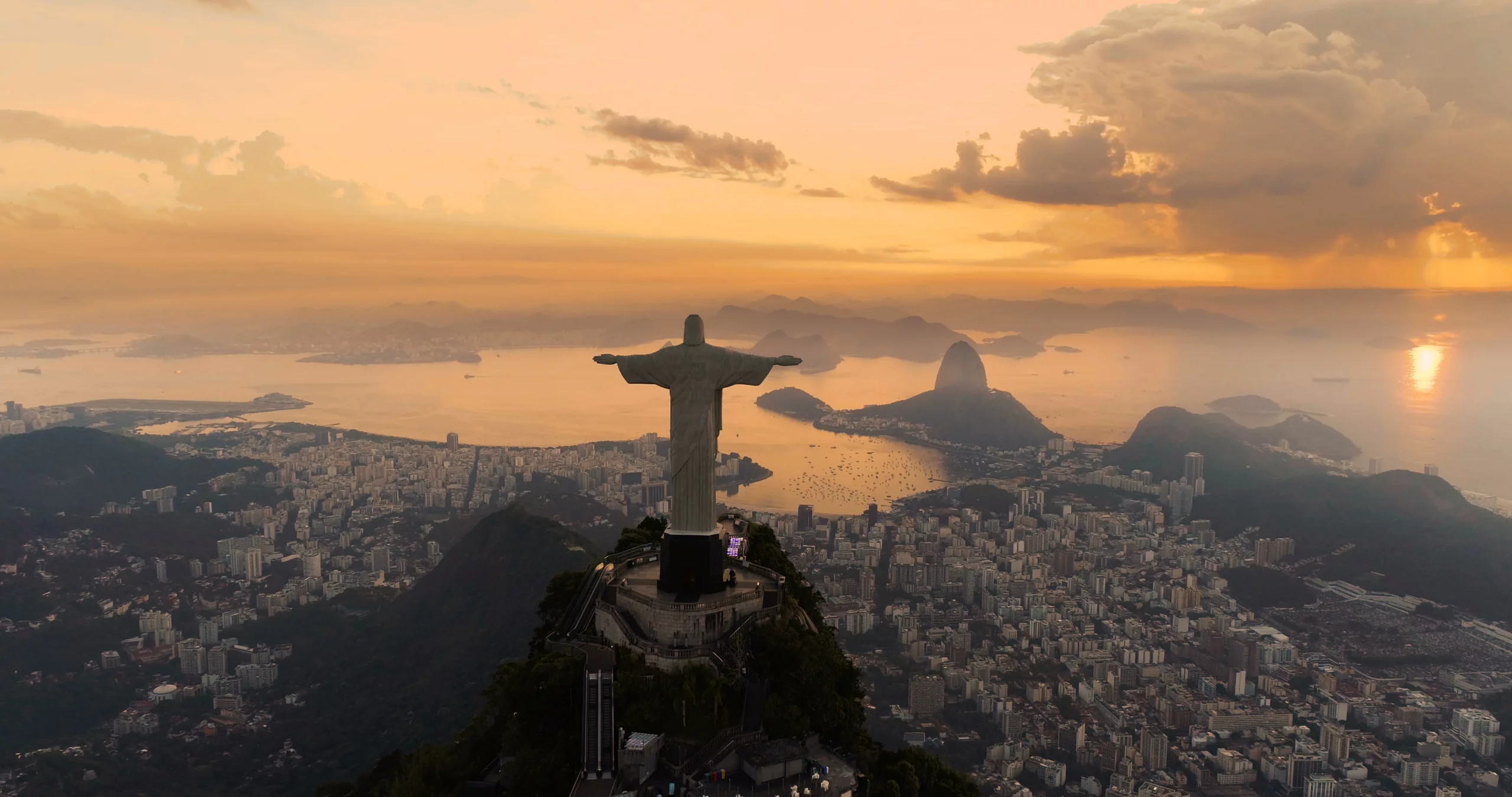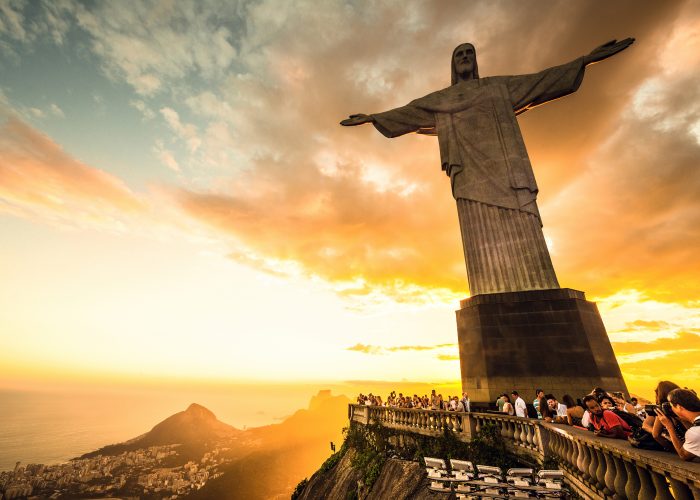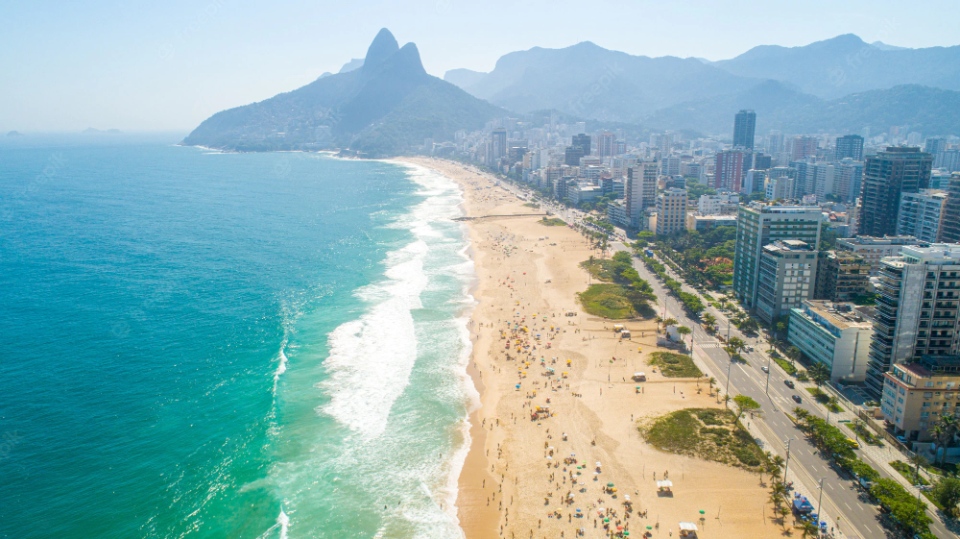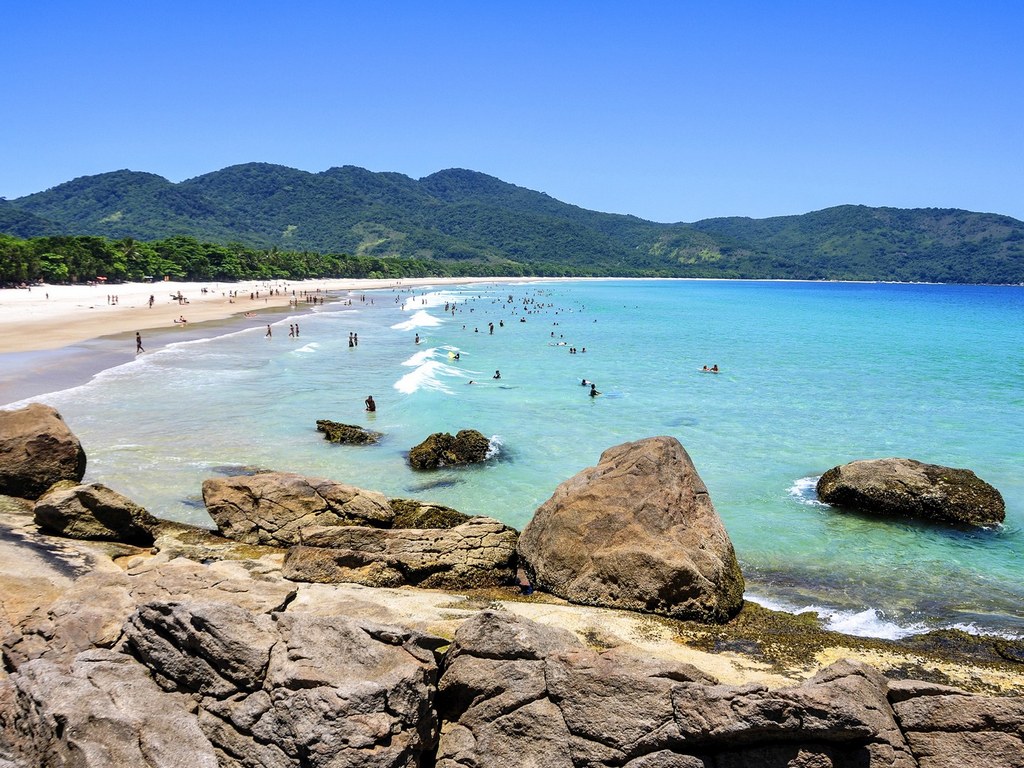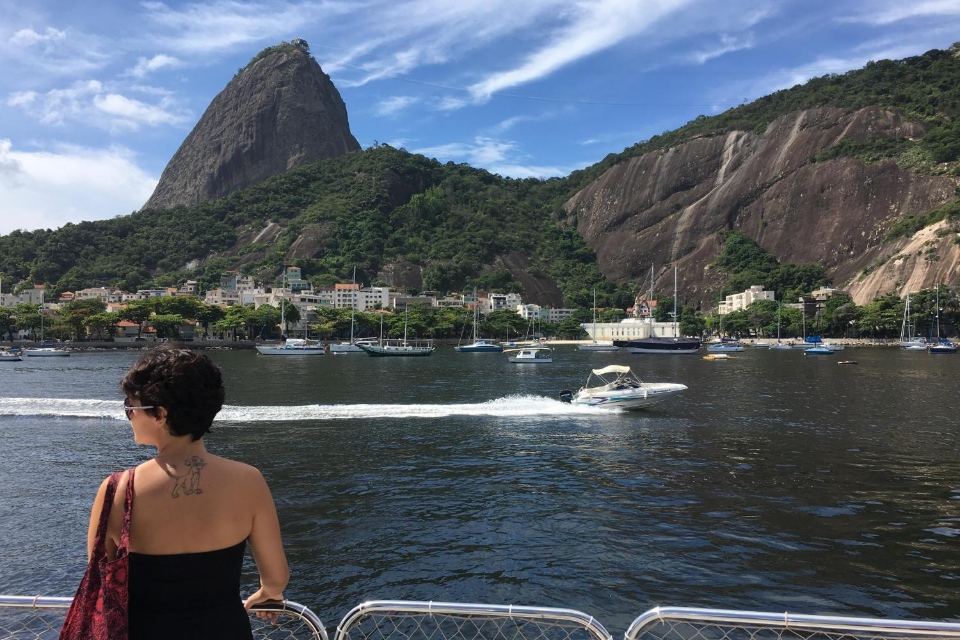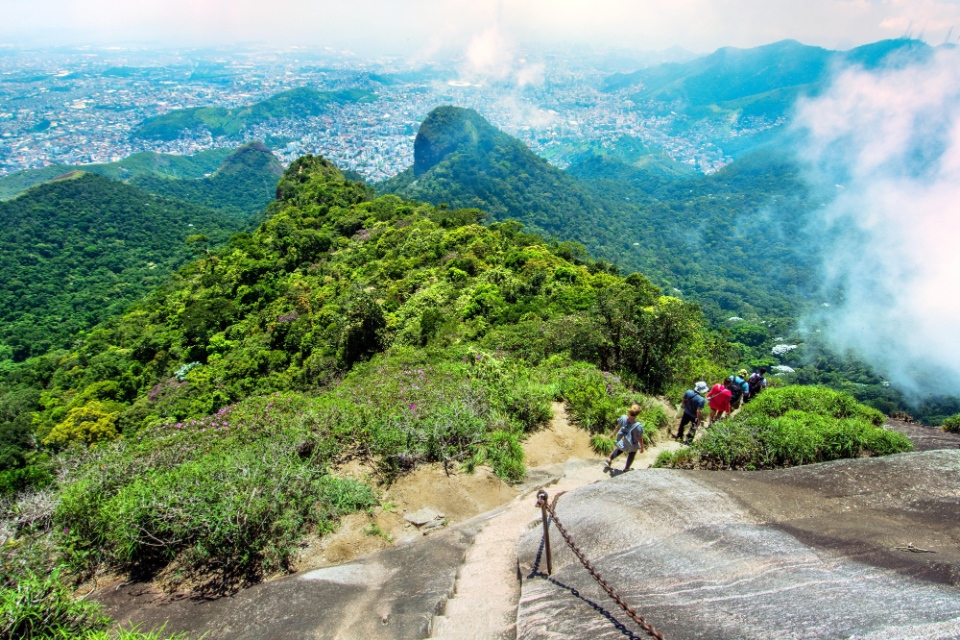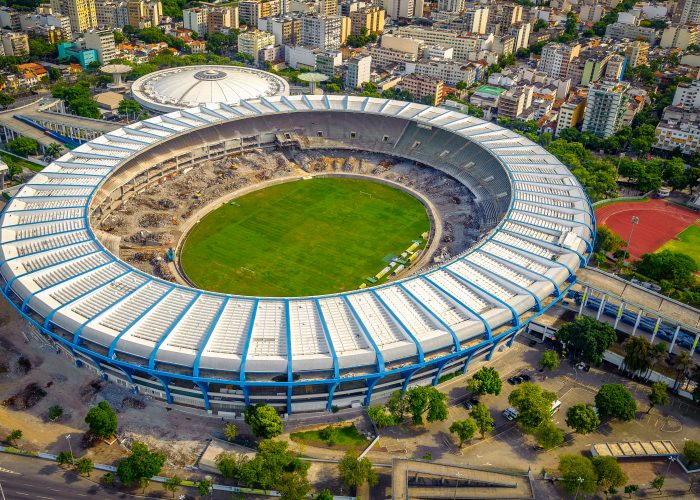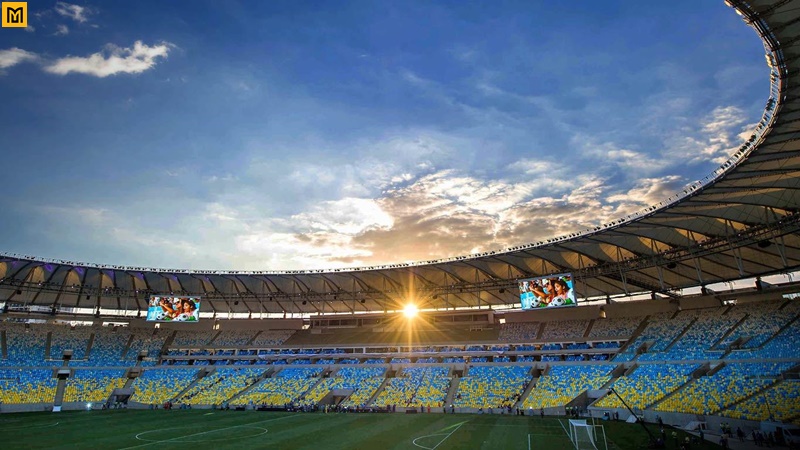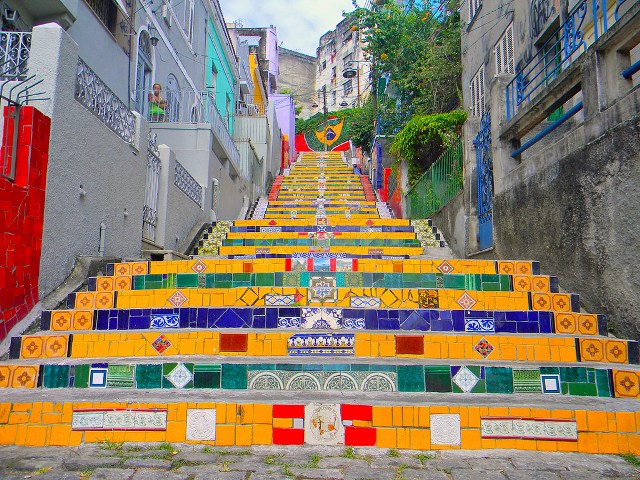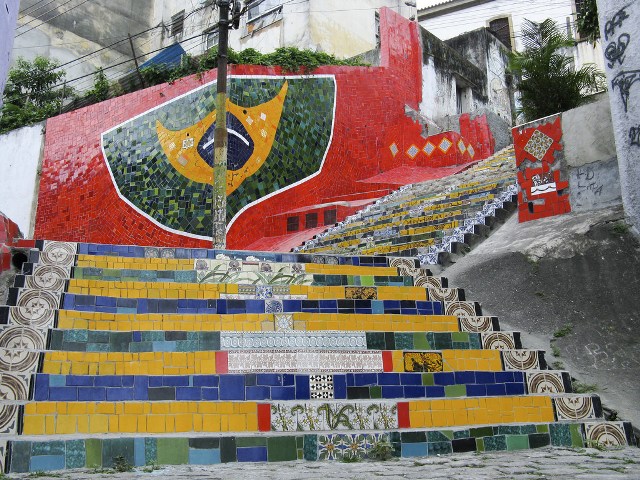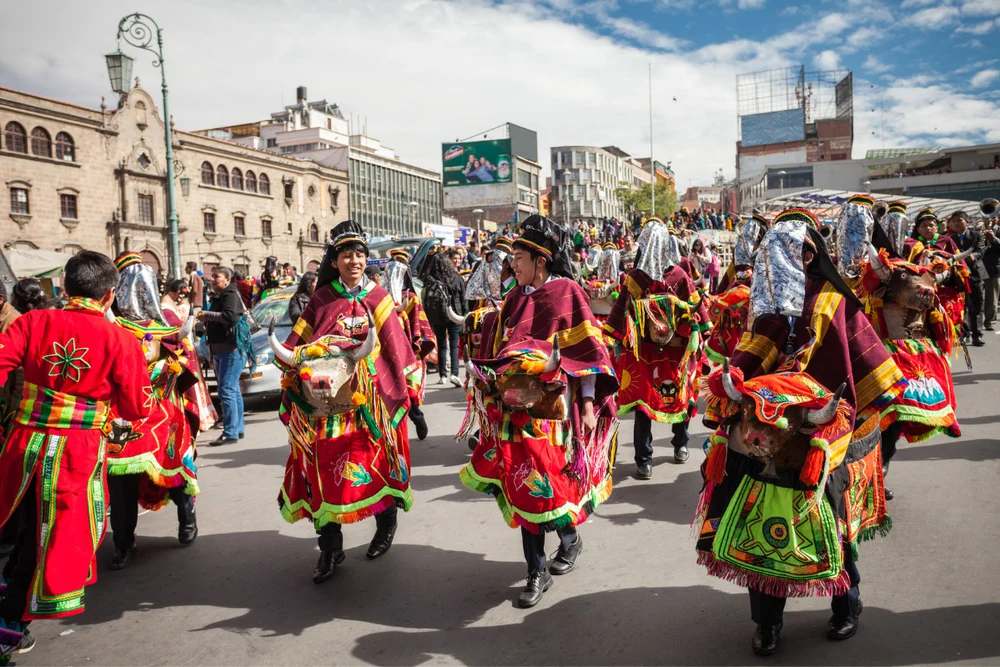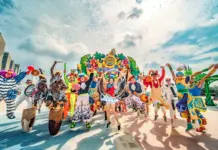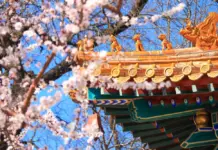Rio de Janeiro is a magical city filled with colors in Brazil. Let’s explore where to go in Rio de Janeiro with 15+ most famous, must-see & best places to visit in Rio de Janeiro suggested by Klook below!
- Rio de Janeiro travel blog — The fullest Rio de Janeiro travel guide for first-timers
- What to buy in Brazil? — 18+ must-buy souvenirs & best things to buy in Brazil
- Exploring Recife — The “Venice” of Brazil
- 15 best places to visit in Bangkok for couples
- Khao Kho travel blog: How to get there, top things to do, eat, see & MORE
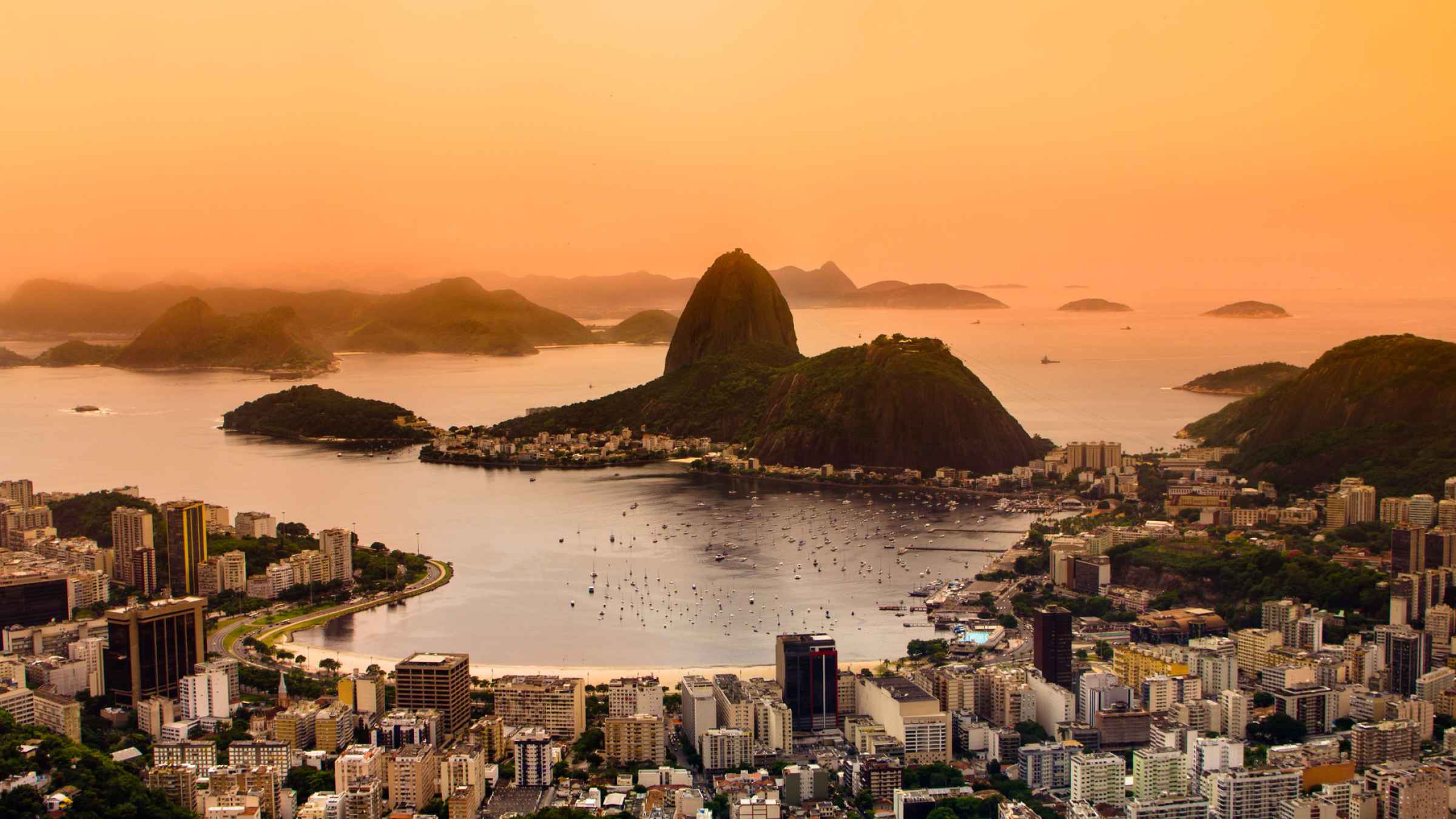
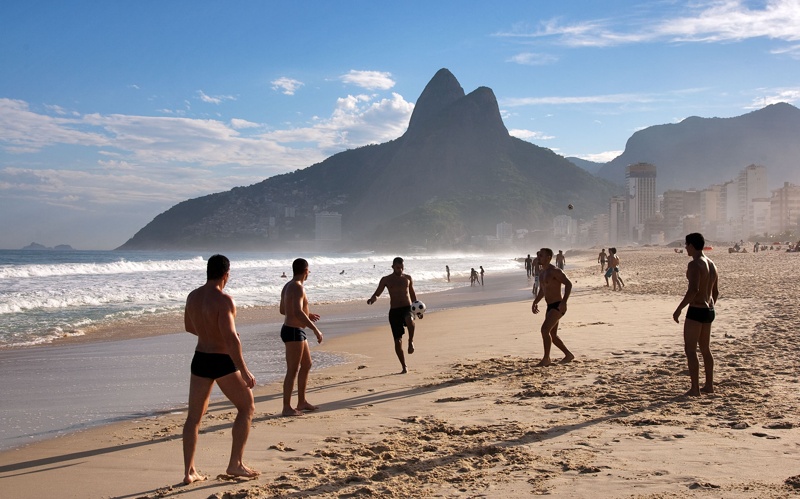
Favored with the name Cidade Maravilhosa (magical city), Rio de Janeiro is a vibrant destination that attracts tourists from all over the world in Brazil. Located at the mouth of the bay, this city owns endless white sand beaches and captivating mountains and forests. In particular, from the top of Corcovado mountain, you will admire the majestic statue of Christ the Redeemer, arms outstretched to embrace the vast sea and sky.
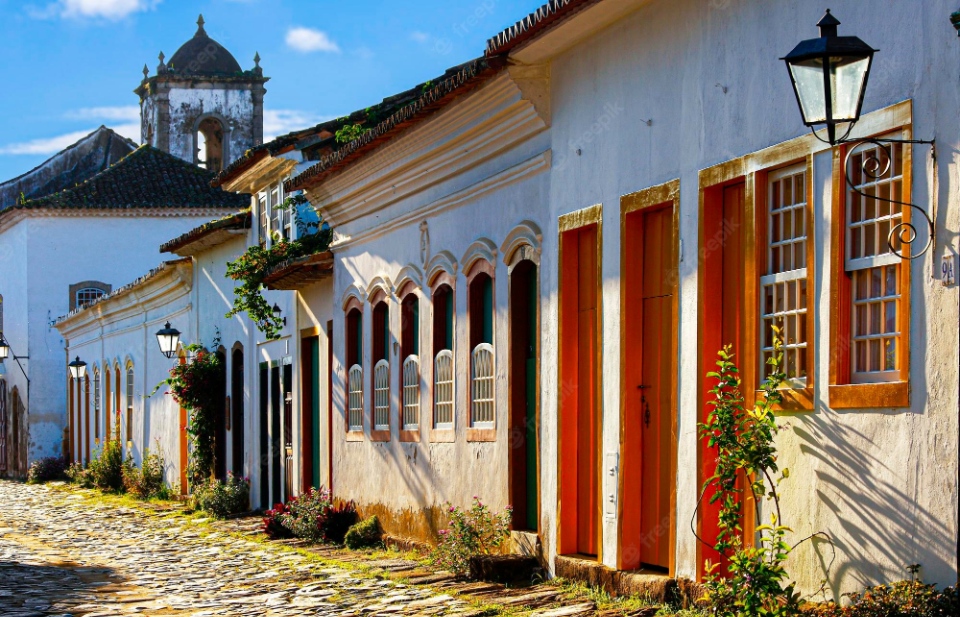
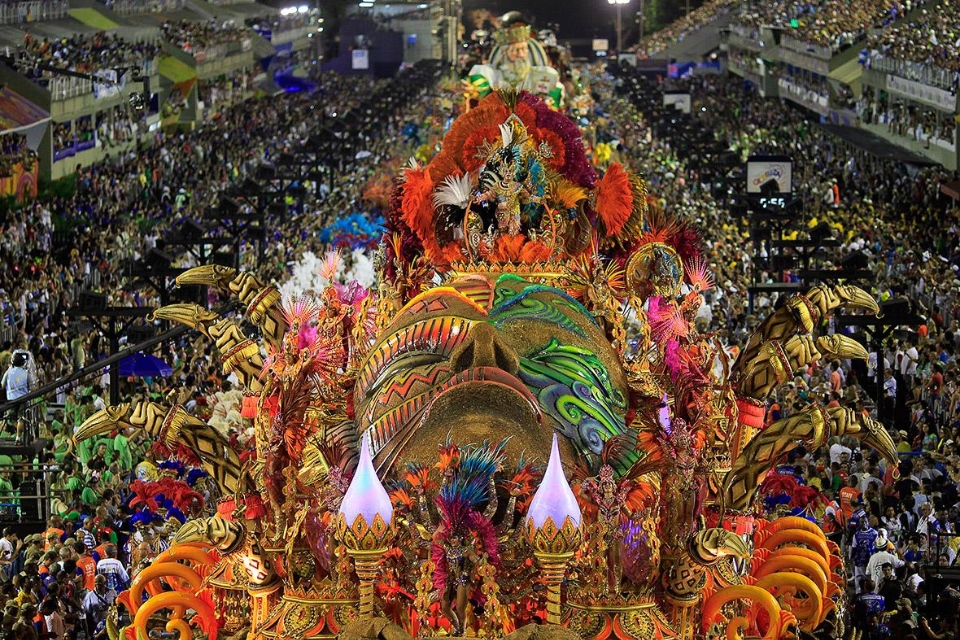
Not only does it have beautiful natural scenery, Rio de Janeiro is also a place of diversity, dynamism and liberal spirit. Let’s explore with Klook the most highly rated tourist destinations in Rio de Janeiro by travel enthusiasts!
Sugar Loaf Mountain (#best places to visit in Rio de Janeiro)
Sugarloaf Mountain (also known as Pão de Açúcar) is one of the prominent symbols of Rio de Janeiro, with a height of nearly 400 meters. From the top of the mountain, visitors have the opportunity to admire the whole city, including Copacabana beach, Ipanema, the mouth of Guanabara Bay, Tijuca forest and the statue of Christ the Redeemer.

The easiest way to get to the top is by cable car, with two stages: From the foot of the mountain to Morro da Urca and continuing from Morro da Urca to Pão de Açúcar. At Morro da Urca, you can stop to walk around and enjoy the scenery before continuing to the top of the mountain. In addition to the cable car, climbing is also an ideal choice for you to slowly admire the beautiful nature. However, the trail only leads to Morro da Urca, you still need to take the cable car if you want to go to the top of Sugarloaf Mountain.

Sugarloaf Mountain is an ideal destination to watch the sunset when the golden sunlight colors the whole city. Spend the afternoon or evening to enjoy the beautiful scenery, take pictures and enjoy drinks and snacks at the bars and restaurants on the top of the mountain.
A little note is that Sugarloaf Mountain is often very crowded, especially during peak hours. Therefore, you should plan ahead and book cable car tickets, or book tours in advance to avoid long waiting times.
Pedra Do Telégrafo – “Virtual Life” Rock in Rio De Janeiro

Located in Guaratiba, west of Rio de Janeiro, Pedra do Telégrafo offers a breathtaking view. From the top of the rock, you will capture the beauty of the pristine beach, Marambaia lagoon and mangrove forest, along with the majestic mountains of Tijuca in the distance. Pedra do Telégrafo is surrounded by Pedra Branca National Park, one of the largest urban forests in the world, covering an area of over 10,000 hectares.

This site was once a military observation post during World War II, where guards watched enemy ships and protected the Brazilian coast. Today, Pedra do Telégrafo is an attractive tourist destination, attracting visitors who love to explore nature and take photos. On the way back, you also have the opportunity to visit the beautiful Grumari beach or admire the wonderful scenery along the Rio de Janeiro coast.

Statue of Christ the Redeemer – Cristo Redentor In Rio De Janeiro
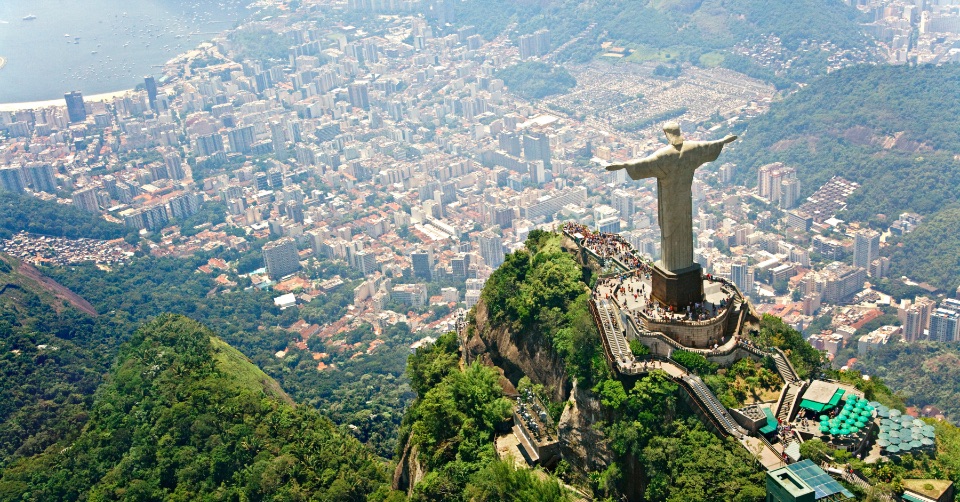
If you come to Rio de Janeiro, you must visit the statue of Christ the Redeemer (Cristo Redentor) – the symbol of the city located on the top of Corcovado mountain. The statue was completed in 1931, the result of a collaboration between French-Polish sculptor Paul Landowski and Brazilian engineer Heitor da Silva Costa.
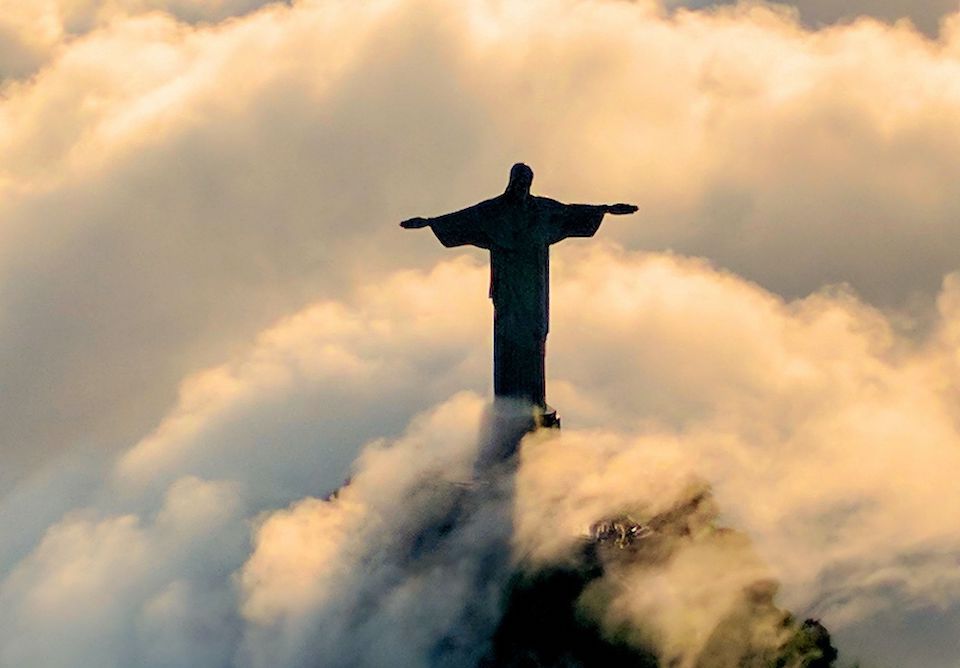
The statue is 38 meters high including the pedestal, built of reinforced concrete and covered with soapstone. To get to the statue, you need to choose to go by train, van or on foot. The train is the most popular option, taking you through the lush Atlantic forest to the top of the mountain.
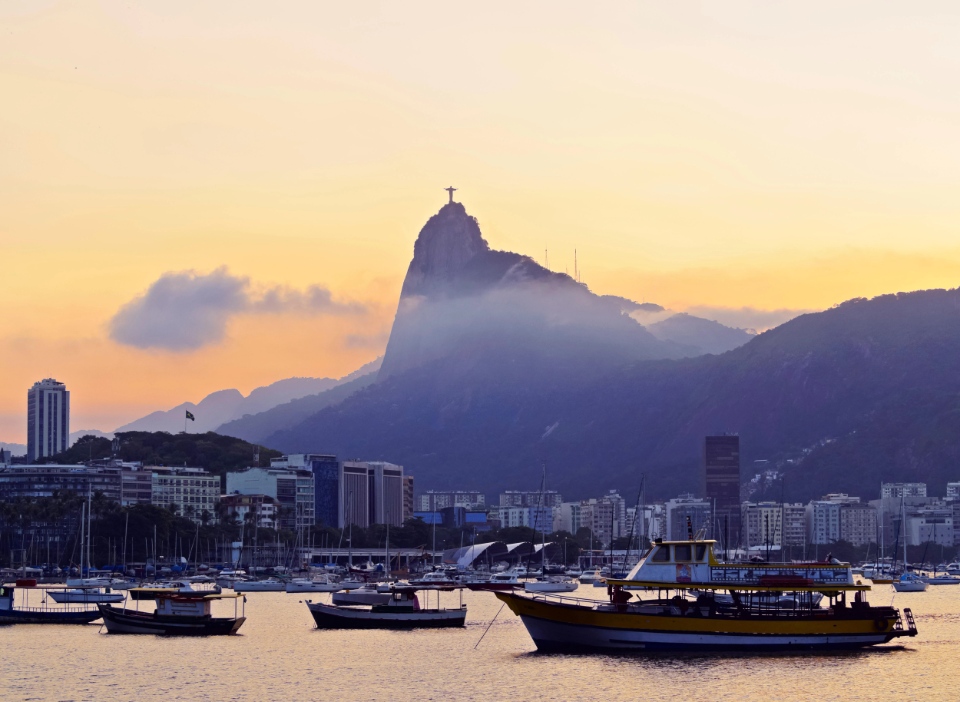
The statue of Christ the Redeemer is not only an architectural masterpiece but also a symbol of faith and hope, bringing a sense of peace and serenity. From the top of Corcovado, visitors will be able to see the whole view of Rio de Janeiro, including Copacabana beach, Ipanema, and the surrounding mountains.
Ipanema Beach In Rio De Janeiro
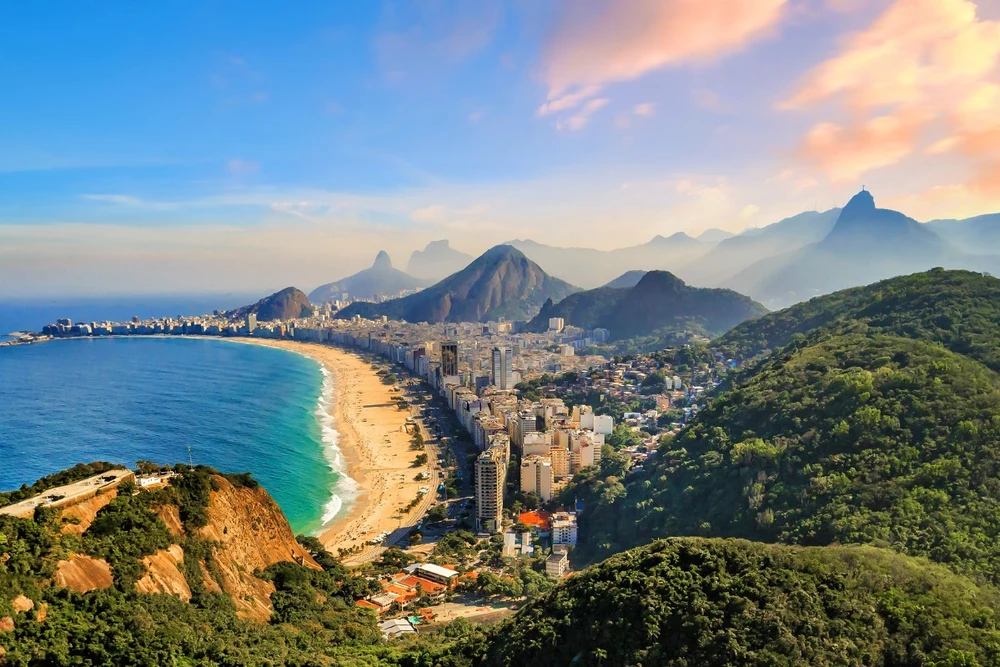
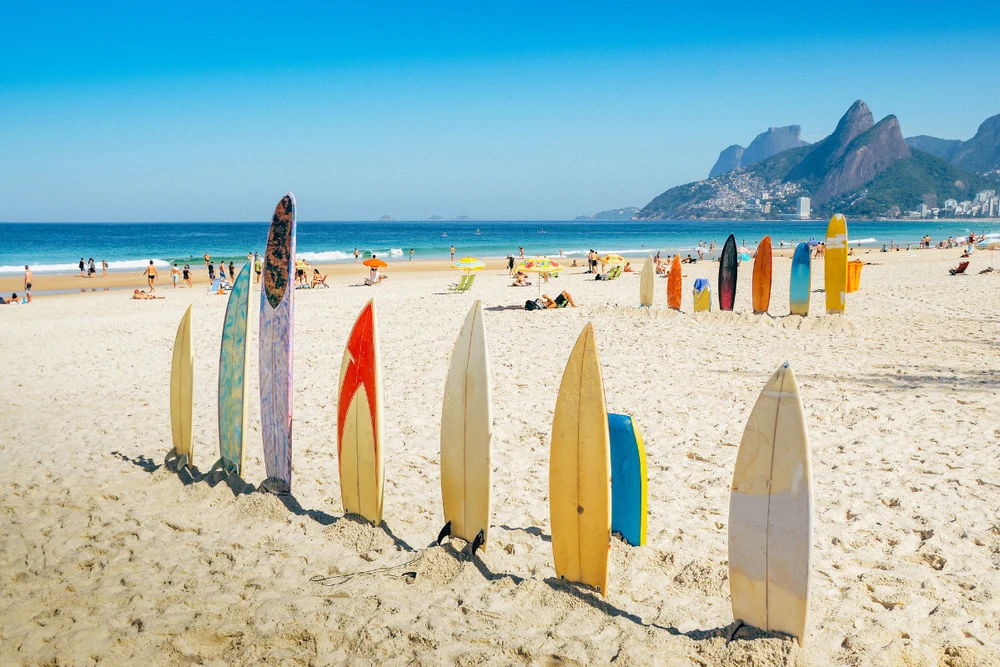
The clear blue waters of Rio de Janeiro, Ipanema Beach is famous for its long stretch of white sand and beautiful mountain views. This is a great stop for those who love outdoor activities and want to be close to Mother Nature on their trips to the West.
Ipanema was once a small fishing village, but by the 19th century it had become a favorite destination for Brazil’s elite. By the 20th century, Ipanema had become a hub for artists, musicians and writers, drawn by the area’s laid-back lifestyle and vibrant culture.

Today, Ipanema is still known for its vibrant cultural scene, from bossa nova music to beach volleyball and futevolei (Brazilian foot volleyball). The beach is also a great place to watch the sunset with the majestic “Two Brothers” mountains as you take in the red sunset over the sea and mingle with the locals!

Ilha Grande Island In Rio De Janeiro – Brazil
If you want to escape the hustle and bustle of city life, head to Ilha Grande, a tropical island off the coast of Rio de Janeiro. With its stunning Lopes Mendes beach, lush jungle trails and adventure activities, it’s a must-see for any nature lover.
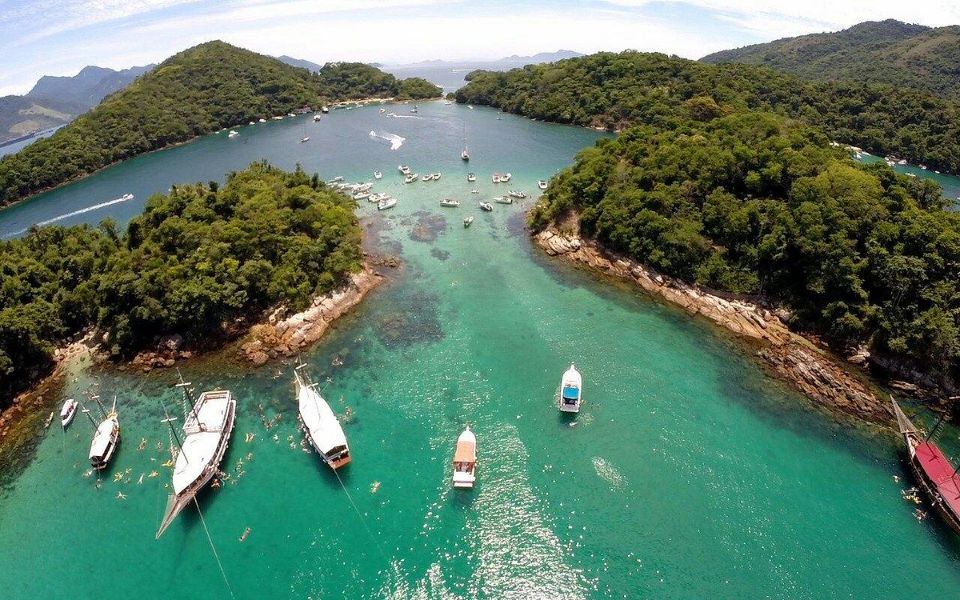
Alternatively, explore the Abraão Circuit, with its Feiticeira waterfall, colonial aqueduct and the Lazareto ruins. In the evening, enjoy the vibrant nightlife at Villa Abraão.
Guanabara Bay In Rio De Janeiro – Brazil
Guanabara Bay is a large and picturesque bay located southeast of Rio de Janeiro. The bay is 29 km long and 18 miles wide, and includes more than 130 islands and islets. The most famous of these are Governador Island and Fundão Island.
The bay is surrounded by majestic mountains, creating a dramatic landscape. Corcovado Mountain, home to the famous Christ the Redeemer statue, is the highlight of the area. Other mountains such as Serra dos Órgãos, Pedra da Gávea, Sugarloaf Mountain, Cara de Cão Hill, Morro do Dendê and Morro do Urubu also contribute to the beauty of the bay.
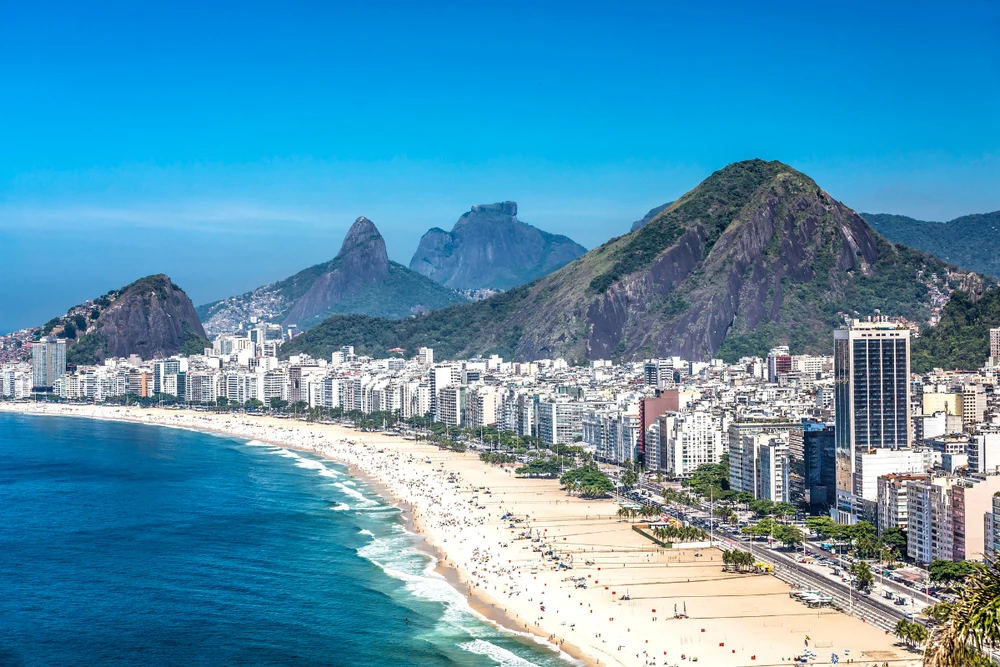
Before the Portuguese arrived in 1502, the bay was inhabited by the Tamoio and Tupiniquim tribes. Therefore, in addition to enjoying nature, you can also learn about the history of Brazil through the periods when the bay was a Portuguese base, then the capital of the Portuguese empire and finally the capital of the independent Brazilian empire.
Tijuca Forest National Park in Rio De Janeiro – Brazil
If you don’t want to go far but still want to enjoy the green nature of Brazil, you should visit Tijuca Forest National Park. This is a vast tropical forest, covered with towering palm trees, clear streams and majestic waterfalls.
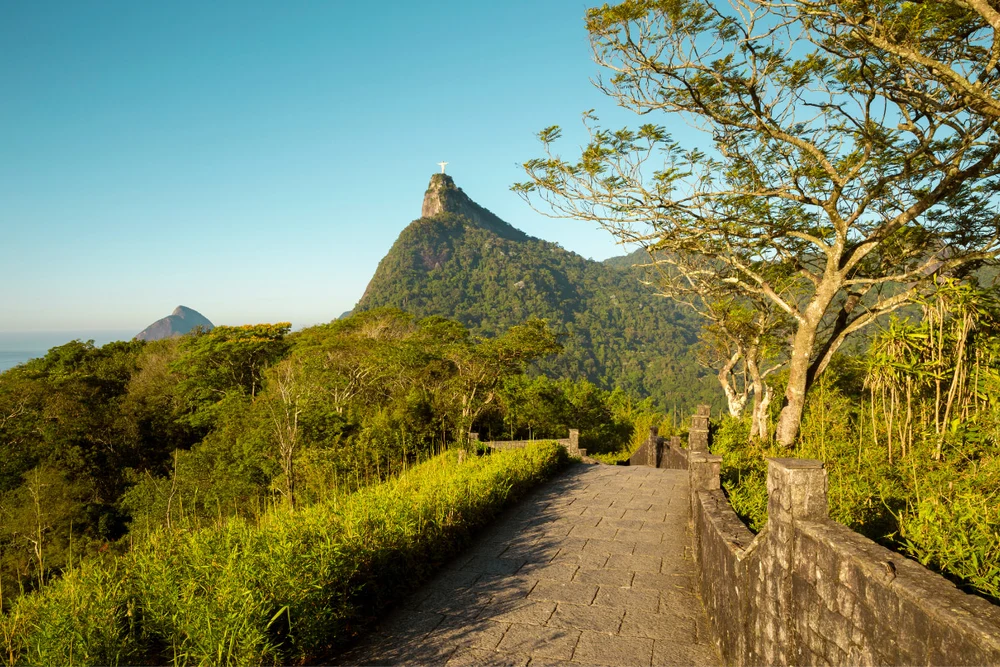
The park was established in 1961, with the aim of protecting the rich ecosystem of the area. It is home to hundreds of species of wildlife, including monkeys, birds, snakes and many insects. In addition, the park also has a diverse flora, with more than 2,000 different species of trees.
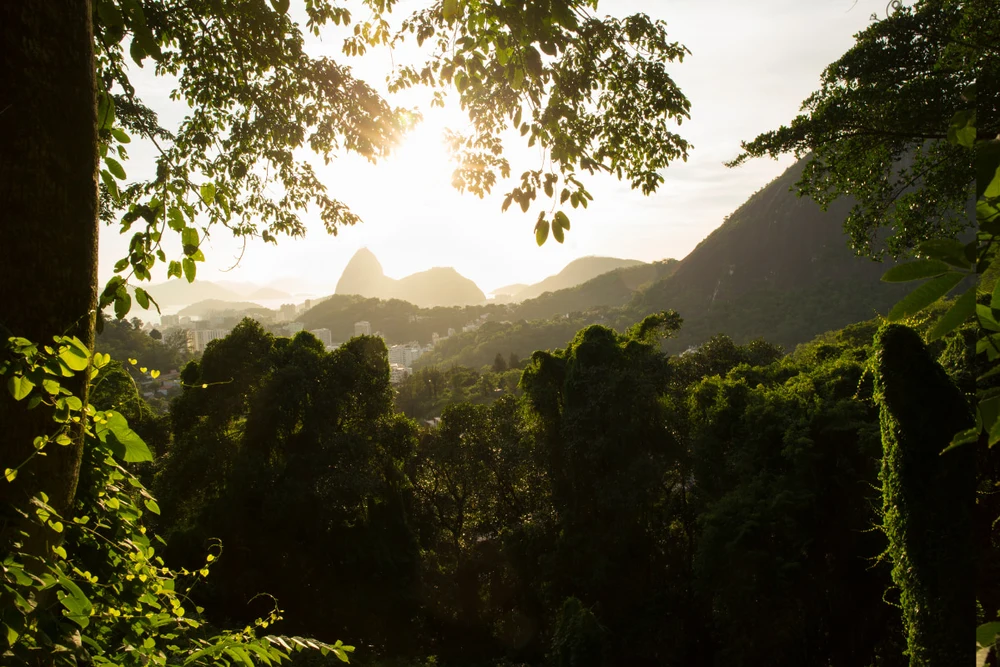
Visitors to the park can participate in many interesting activities such as climbing, hiking, cycling, kayaking and enjoying the pristine nature. Famous places in the park include Cascatinha waterfall, Pedra da Gávea cave, Corcovado mountain peak and the statue of Christ the Redeemer.
Metropolitan Cathedral Of Saint Sebastian – Brazil
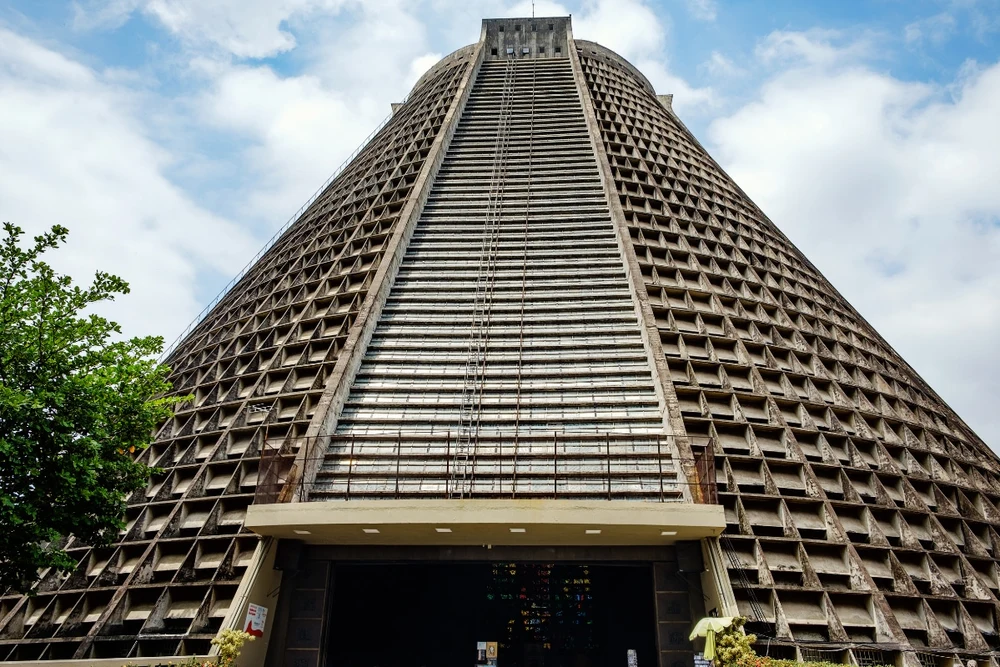
The Metropolitan Cathedral of Saint Sebastian, also known as the Cathedral of Rio de Janeiro, is a magnificent architectural symbol of the city. Built in the 19th century, the church has a neoclassical architectural style, with a facade decorated with massive columns and statues with strong religious colors.
The architecture of the church is inspired by the image of a Mayan pyramid, with a circular base and gradually narrowing to the top. Inside the church, a transparent cross is illuminated by natural light, symbolizing the presence of Jesus among people.
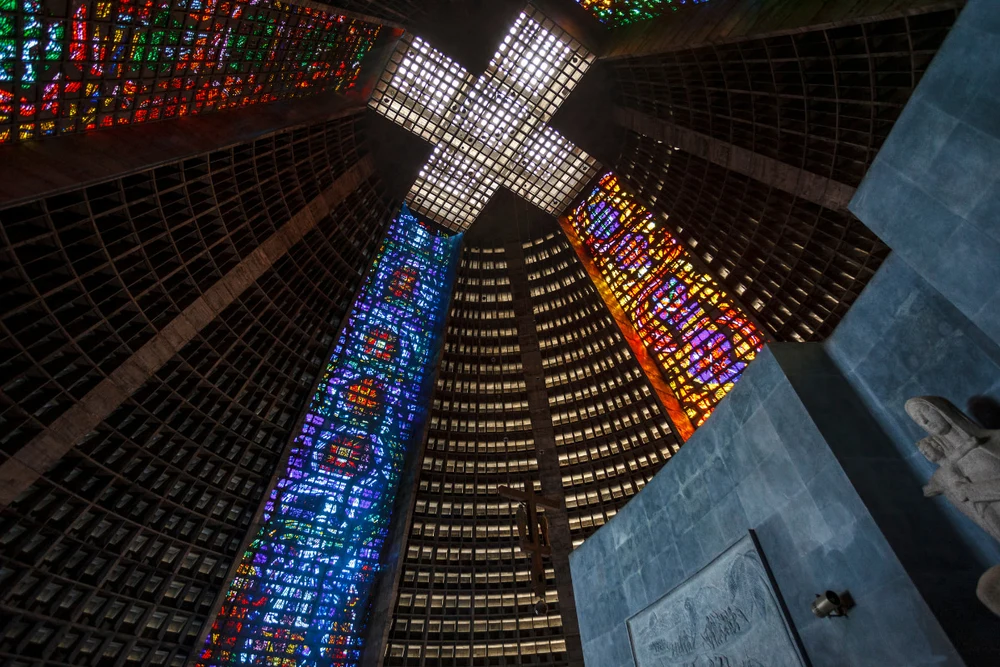
Inside, the church is lavishly decorated with frescoes, oil paintings and exquisite sculptures. It is also home to precious relics of the Catholic Church, including a statue of Saint Sebastian, the patron saint of the city.
Copacabana Fort in Rio De Janeiro – Brazil
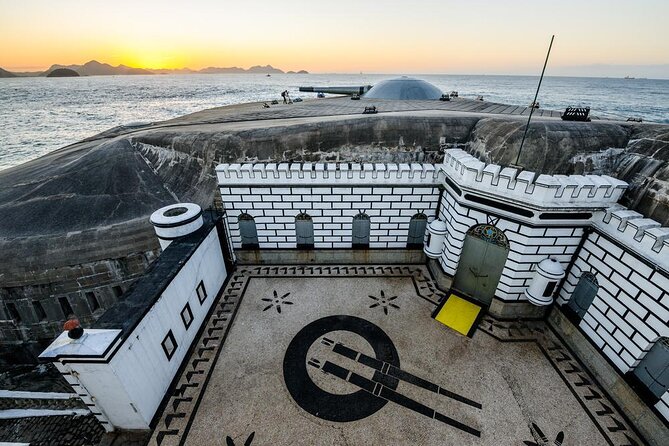
Built in the early 20th century to protect the city when Rio was the capital of Brazil, Copacabana Fort has witnessed many important historical events. Today, the fort functions as a cultural space and is known as the Copacabana Fort and Military History Museum, attracting around 35,000 visitors each month. The fort is famous for its beautiful infrastructure, offering exciting entertainment and cultural activities such as exhibitions and special events.
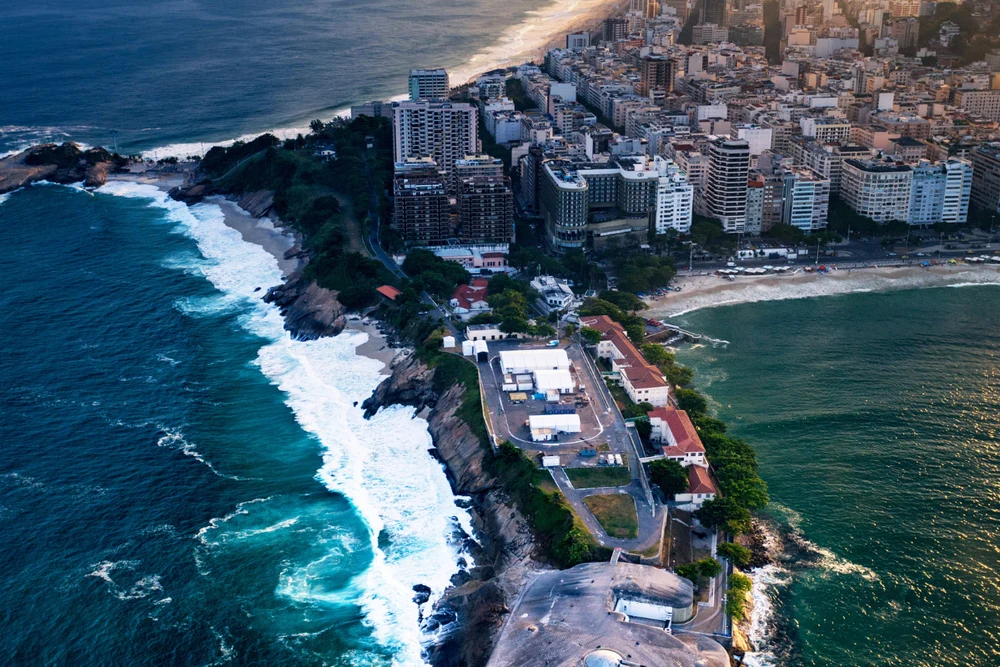
You can enjoy a delicious breakfast or lunch at the restaurants on the fort grounds. In addition, you can also enjoy the breathtaking view of Sugarloaf Mountain, Copacabana Beach and Praia do Diabo.
Maracanã Stadium in Rio De Janeiro – Brazil

Besides its impressive nature, Rio de Janeiro is also known for its passionate sports spirit. Maracanã Stadium is a famous symbol of world football. This is the place that has witnessed many memorable matches, from resounding victories to bitter defeats.
Maracanã was built in 1950 and was once the largest stadium in the world, with a capacity of up to 200,000 people. Currently, the stadium has a capacity of 78,800 seats, divided into zones A to F.
This stadium has hosted major sporting events such as the 2014 World Cup, the 2016 Summer Olympics, and many other exciting matches. The passionate atmosphere here is an unforgettable experience for football lovers.
When visiting, you also have the opportunity to explore areas such as the press room, VIP lounge and the tunnel leading to the pitch. You also have the opportunity to sit in the coach’s chair, feeling the thrill of witnessing a match in front of thousands of spectators.
Arcos Da Lapa Aqueduct in Rio De Janeiro – Brazil
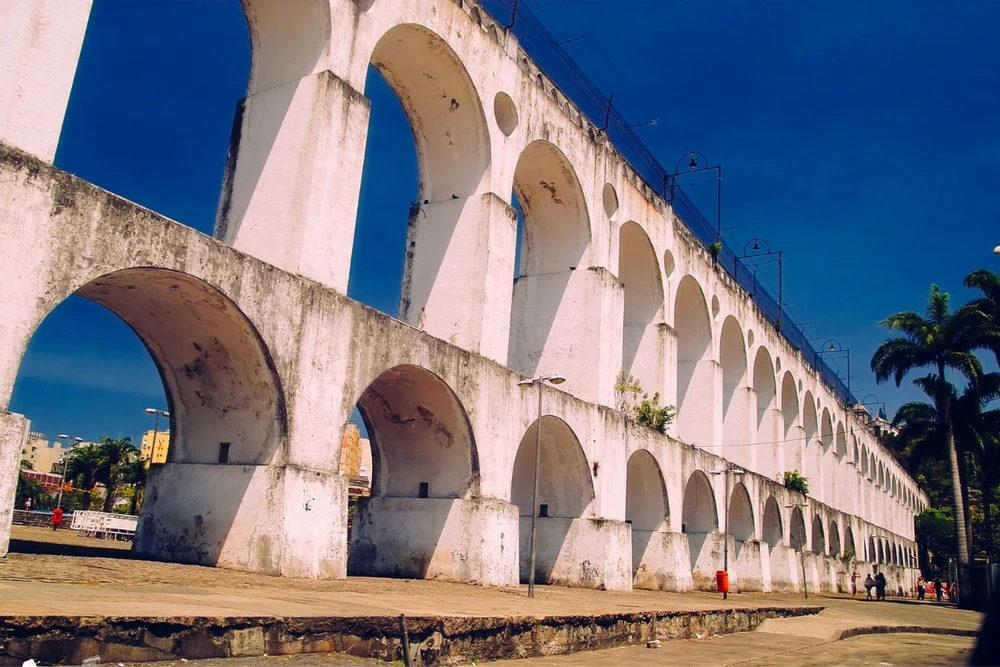
Built in the 18th century, the Arcos Da Lapa Aqueduct was designed to carry water from the Carioca River to fountains in the city center. The aqueduct was built of stone and lime, with 42 Roman-style arches, about 270 meters long and nearly 18 meters high. It is the largest and most important colonial architectural work in Brazil.
By the mid-19th century, the city’s water supply system had been improved, making the aqueduct no longer used for its original purpose. However, in 1896, the aqueduct was connected to a cable car system, becoming the main means of transportation between the city center and the Santa Teresa area.
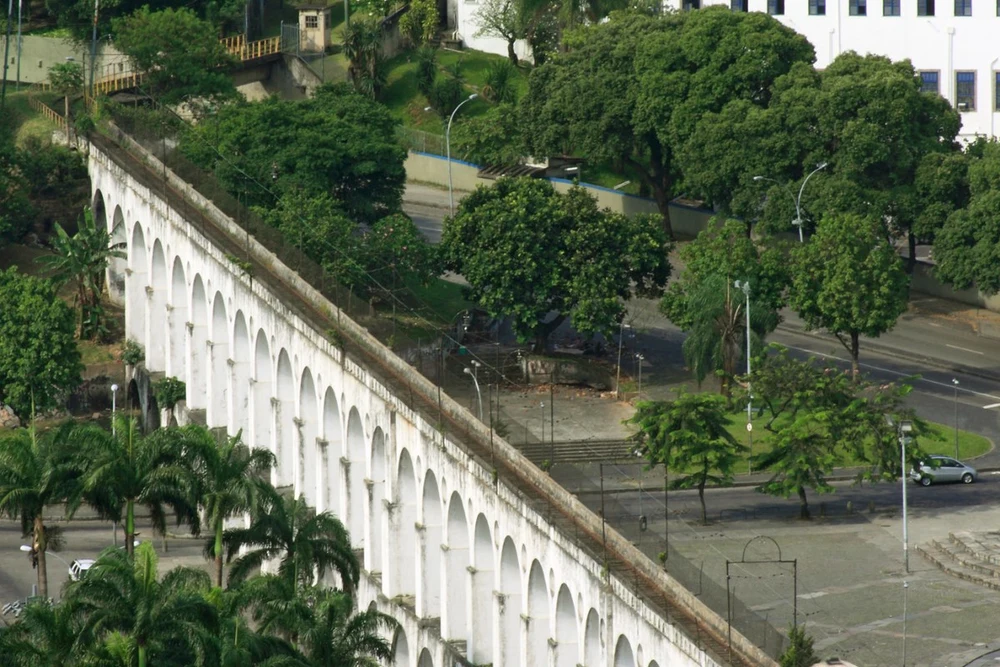
Today, the Arcos da Lapa Aqueduct is a popular tourist attraction, attracting visitors for its architecture and long history. Walk along the aqueduct for a panoramic view of the city or take the cable car for a fun way to get around.
Lapa Steps – Escadaria Selarón In Rio De Janeiro
If you want to learn about art and have a beautiful photo collection in Rio de Janeiro, the Lapa Stairs are a destination you should not miss. Created by Chilean artist Jorge Selarón, the stairs are a colorful and unique work of art.
Selarón initially started decorating the stairs with yellow, green and blue tiles representing Brazil and red representing Chile. He then collected more tiles from all over the world, creating a colorful and cultural mosaic. Just on a sunny day, you will take countless colorful and vibrant photos here.

The Lapa Steps are located near the Lapa area, which is home to many bars, restaurants and entertainment venues. You should combine a visit to the stairs with an exploration of the Lapa area to experience the culture and vibrant nightlife of Rio de Janeiro.
Carnival at Sambodromo – Brazil
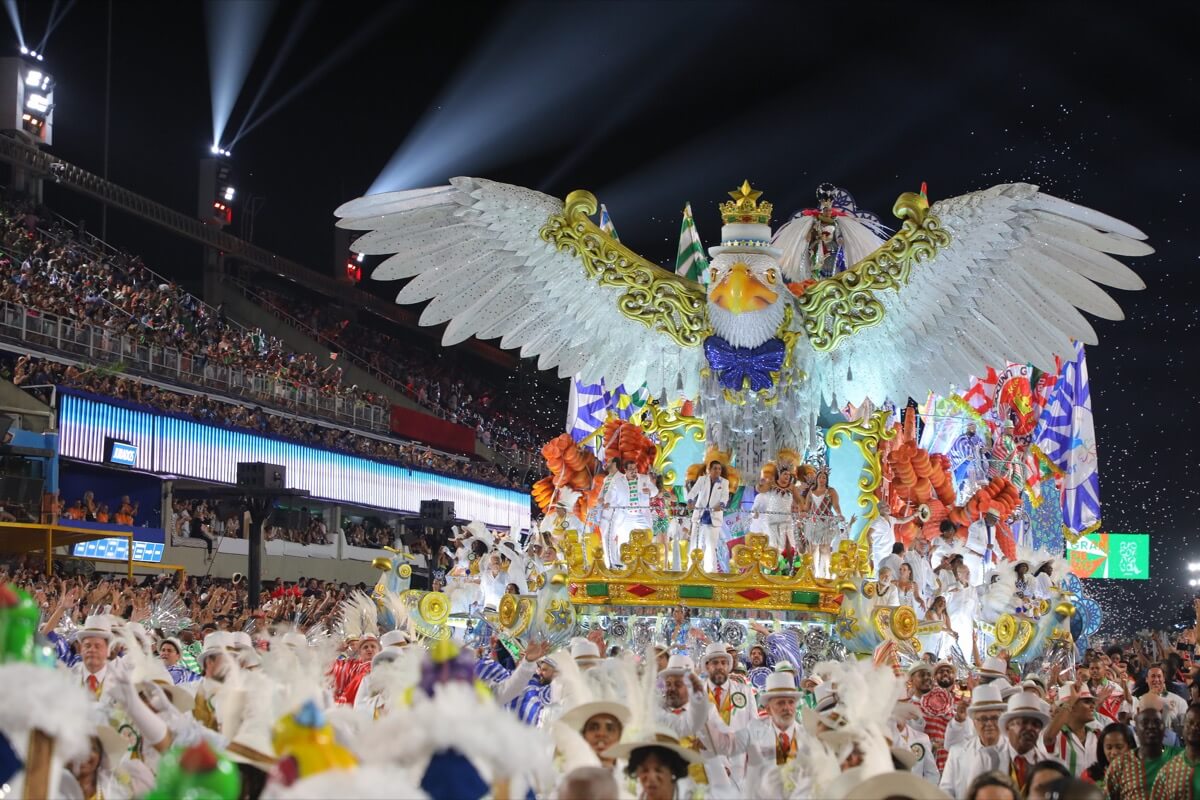
When mentioning Brazil or Rio de Janeiro, it is impossible not to mention samba, a typical dance that brings a joyful atmosphere. Carnival Festival at Sambodromo is a spectacular and colorful event, attracting millions of tourists every year. This is a competition between many samba schools, each school performs an elaborate performance, including dancers, floats, sponsored celebrities and a certain theme.
Samba schools are classified by level and perform on different nights. The higher level schools perform on weekends. So, to see the best performance, come on Sunday and Monday!
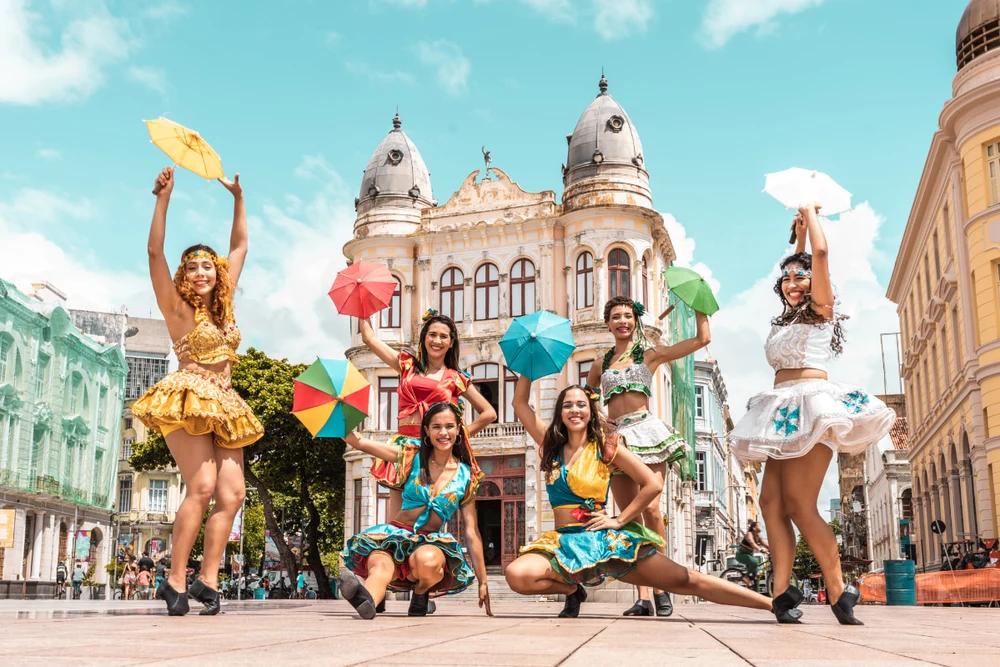
In addition to the main festival, there are still street parties called blocos, taking place throughout the city of Rio de Janeiro. Blocos often feature samba music, colorful costumes, and unique themes for you to experience.
Rocinha Favela slump in Rio De Janeiro
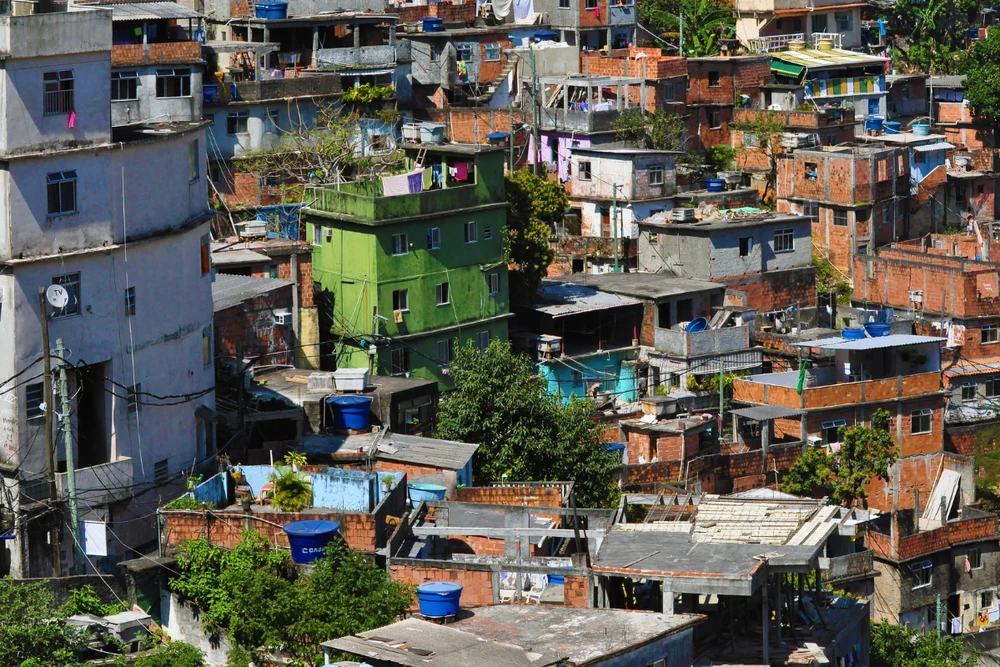
You must be wondering what to see in a favela, right? However, Rocinha promises to give you an unforgettable experience! A favela in Rio de Janeiro, located right next to Leblon, the city’s wealthiest area, Rocinha is known as one of the largest favelas in South America, with a population of up to 300,000 people. Despite being a poor area, Rocinha still has infrastructure, roads, banks, buses, and most houses have running water and electricity.
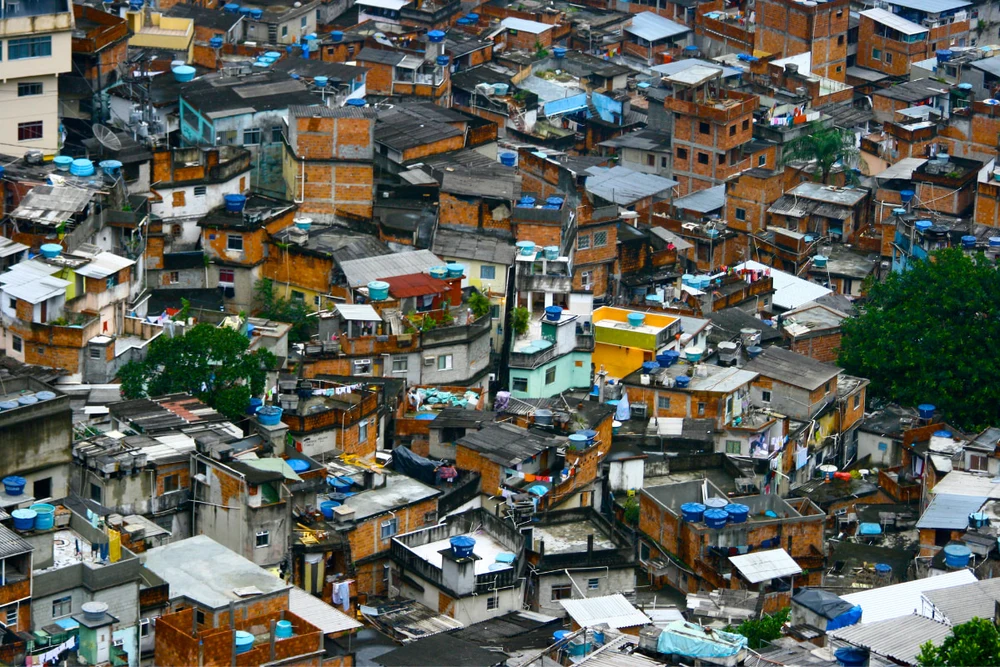
You can explore Rocinha by motorbike, bus, or taxi. Here, you will enjoy traditional Brazilian dishes such as coxinha, salgado, and feijão tropeiro. Or you will have the opportunity to visit capoeira studios to see impressive performances by many students here.
Flamengo Museum In Rio De Janeiro, Brazil
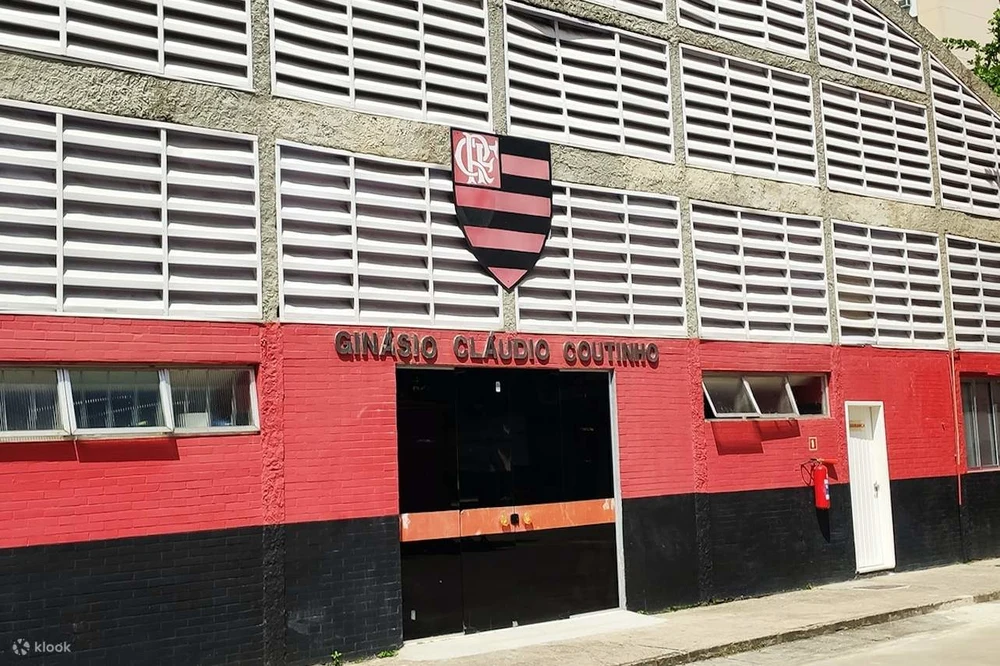
The Flamengo Museum is a “must-try” tourist destination for football fans, especially fans of the Flamengo club. The museum displays many memorabilia, trophies and preserves countless stories behind the success of Flamengo, the team nicknamed “Rubro-Negro” (red-black).

You will have the opportunity to admire prestigious trophies, historical playing uniforms, souvenir photos and many artifacts related to Flamengo. The museum also provides information about legendary players, memorable matches and proud moments of the club. In addition to the museum, you can also choose a combination package to visit many of Flamengo’s facilities, including the stadium, gym, swimming pool and dojo.
The magical city of Rio de Janeiro is an ideal tourist destination for all visitors. Along with nature, you can also feel the vibrant rhythm of the city through samba music and colorful festivals.
The post first appeared on Klook Vietnam and was translated and edited by Living Nomads. If you find any images or text that belong to you, please contact us, so we can credit you or give us permission to use them. Thank you very much!
Some best day tours, trips, activities and transfer services, tickets in, from and to Rio de Janeiro you can refer to
- Rio: Christ the Redeemer Official Ticket by Cog Train
- Rio de Janeiro: Sugarloaf Cable Car Official Ticket
- Rio: Maracanã Stadium Official Entrance Ticket
- From Rio de Janeiro: Angra dos Reis Boat Trip with Lunch
- Rio: Christ the Redeemer, Sugarloaf, & Selaron Day Tour
- Rio De Janeiro: Half-Day Rocinha Favela Walking Tour
- Rio de Janeiro: Sunset Sailing Tour
- Rio de Janeiro: Favela Santa Marta Tour with a Local Guide
- Rio de Janeiro Hang Gliding Adventure
- Rio de Janeiro: 30 or 60-Minute Highlights Helicopter Tour
- Rio de Janeiro: Carnival 2023 Samba School Parade Ticket
- Rio De Janeiro: Half-Day Rocinha Favela Walking Tour
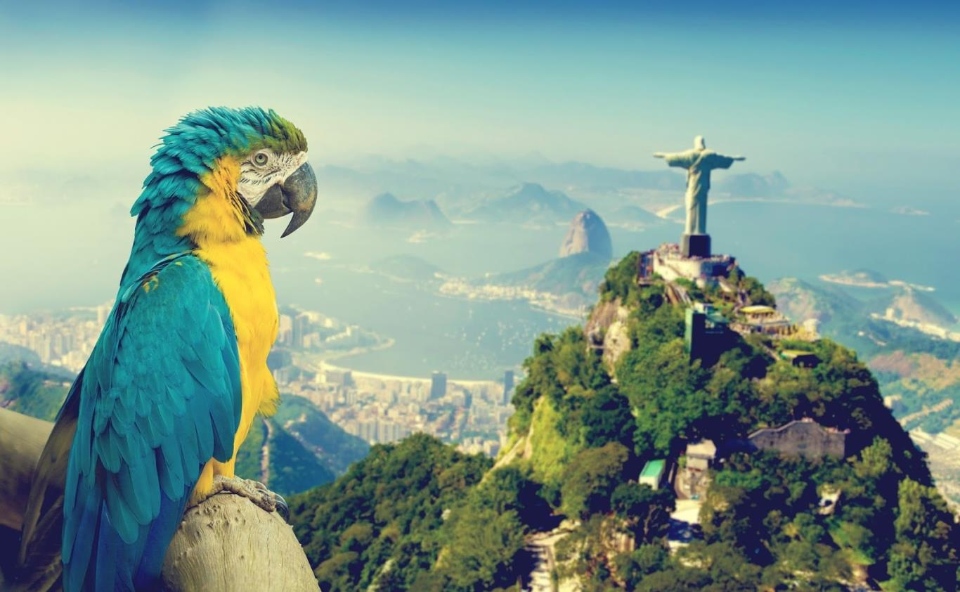
Happy traveling! Read more Rio de Janeiro guide here.

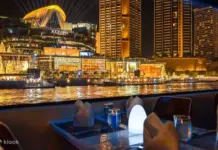
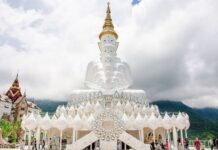


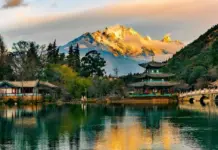

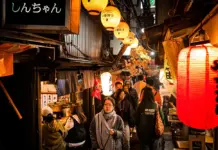




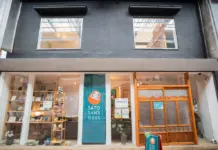


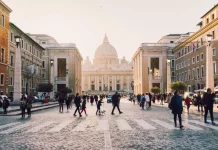
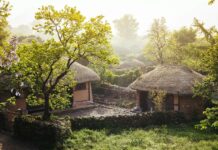


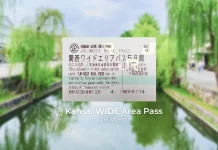



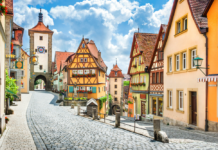



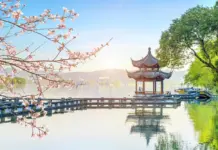

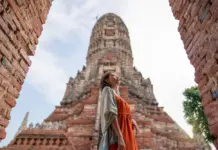
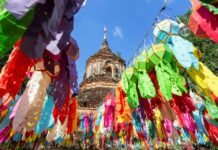

![10 best airports in Asia in 2016 [RANKED] kuala-lumpur-international-airport-best airports in asia in 2016 by skytrax ratings](https://livingnomads.com/wp-content/uploads/2016/08/29/kuala-lumpur-international-airport-best-airports-in-asia-in-2016-by-skytrax-ratings-218x150.jpg)

